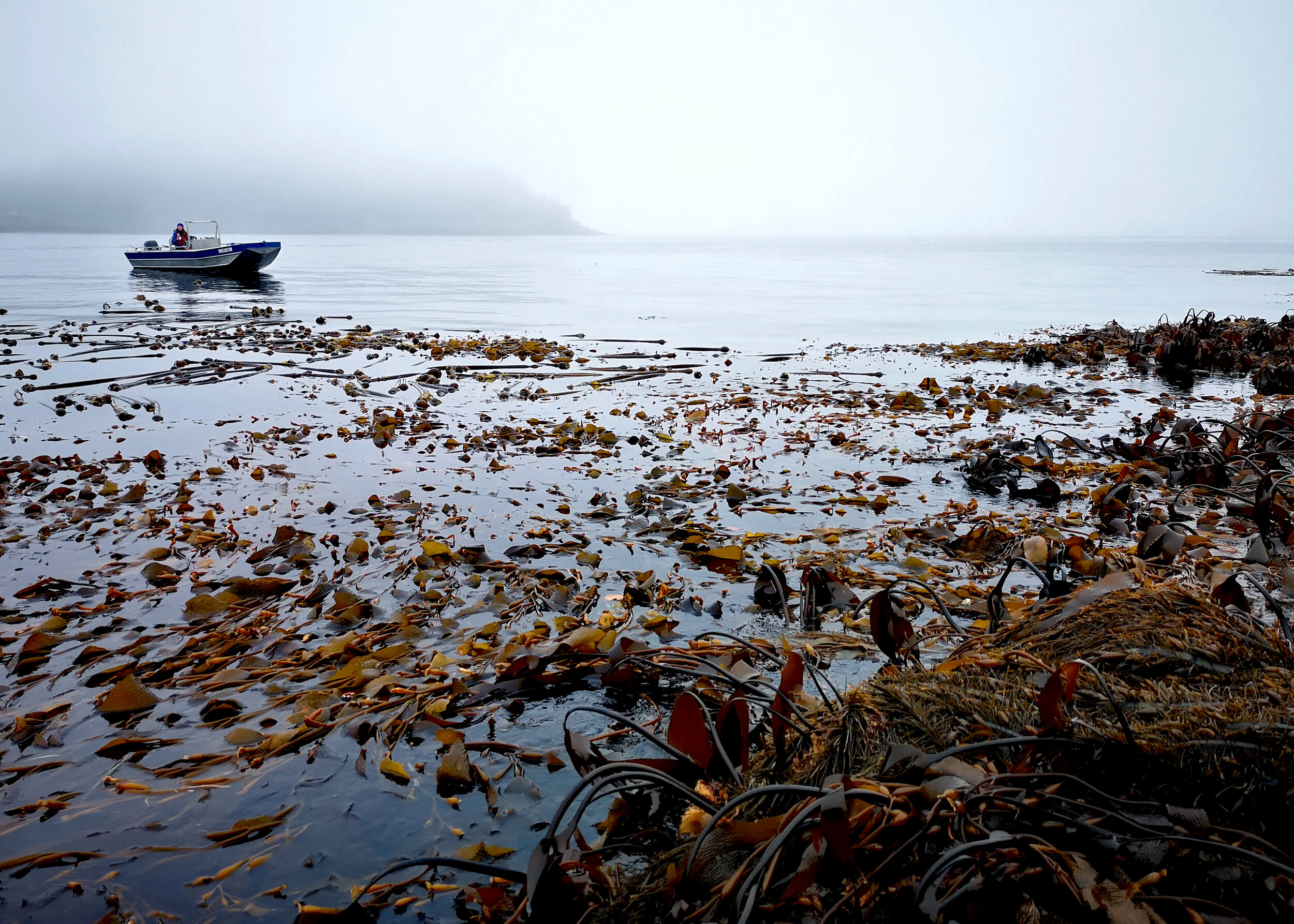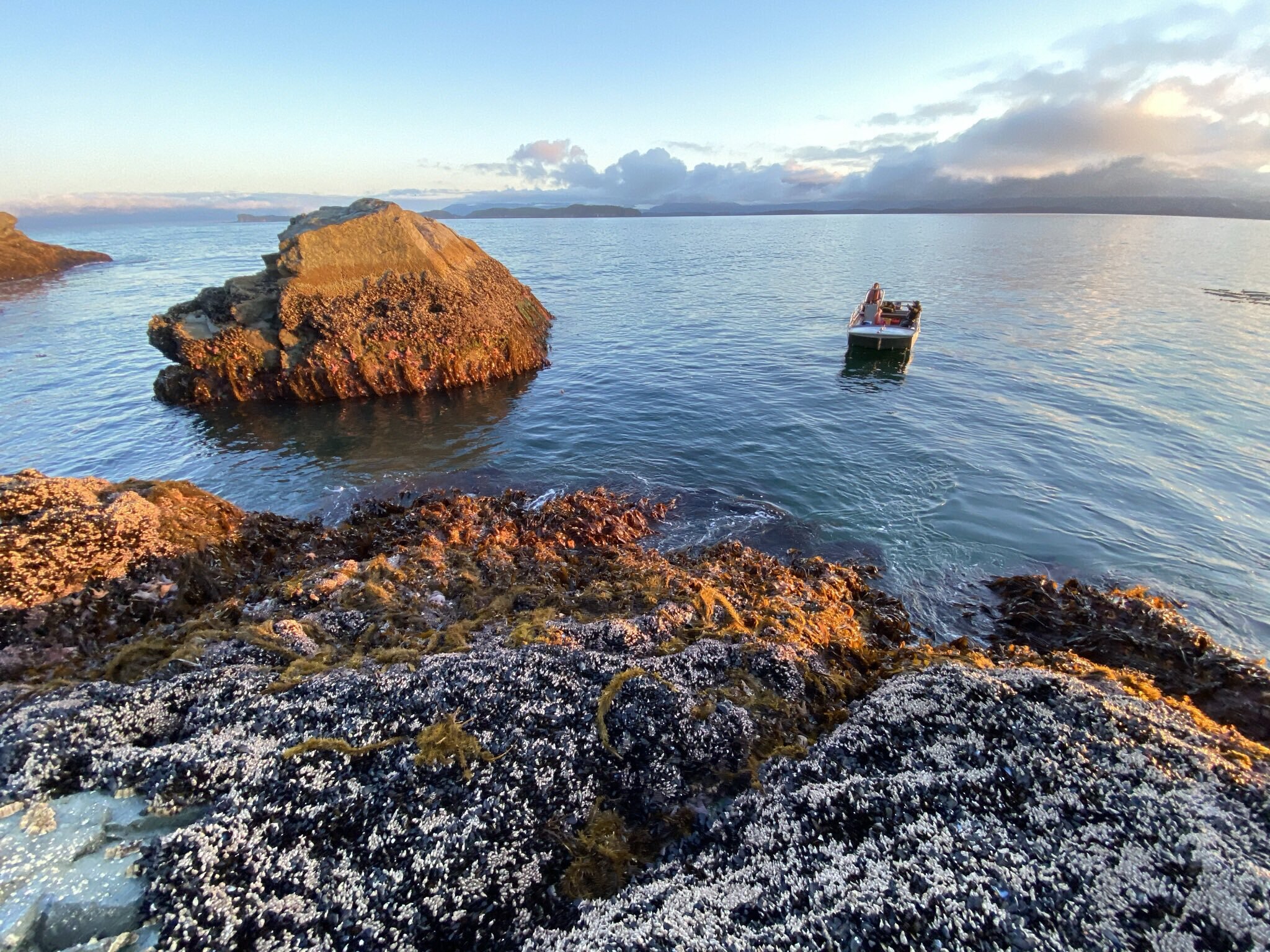
Natural Climate Solutions
Oceans are powerful sources of climate change solutions.
A 2019 report from the High Level Panel for A Sustainable Ocean Economy concluded that oceans could contribute to >20% of the required climate solutions to reach the global Paris Agreement targets. Yet despite having the world’s largest coastline, Canada has not yet included oceans in its climate solutions portfolio.
We aim to change that.
Kelp as Blue Carbon
In the tropics, sea grasses and mangroves are important forms of blue carbon, sequestering rich carbon stores in the sediment beneath them. In Canada, and other temperate nations, there is growing interest in kelp as a potential source of blue carbon, but also many uncertainties. Kelp forests provide essential habitat for numerous fish and invertebrate species and fuel the productivity of temperate coastal ecosystems. But they are also highly threatened by climate change. And while their restoration would have many benefits, it is unclear if it would also contribute as a climate change solution.
In our DFO, NSERC Alliance, and Mitacs supported project, Blue Carbon Canada, also endorsed by UN Ocean Decade Actions, we are undertaking a critical appraisal of the viability of Canada’s kelp forests in this regard. Working in collaboration with climate experts and partners at Kelp Rescue, Nature United, Oceans North and Arctic Kelp, we are modelling the present extent of kelp along Canada’s three coastlines, and projecting its potential to persist under different climate change scenarios. This work in part of a larger NSERC Alliance research project working to evaluate the current and future capacity for natural climate solutions in Canada’s oceans. This project started summer 2022 and has its own dedicated website.
Kelp Restoration
Kelps provide essential marine habitats throughout the Northeast Pacific and fuel the productivity of coastal ecosystems. Yet, kelp forest ecosystems are highly vulnerable to climate change, with increasingly frequent marine heatwaves a key threat. Active interventions, including restoration efforts, are therefore needed to improve the outlook for the persistence of kelp forest ecosystems. This project, in collaboration with Kelp Rescue Initiative, will conduct some of the first trials of the “green gravel” kelp restoration approach in British Columbia. The results fill a fundamental knowledge gap that currently limits our ability to meaningfully scale-up kelp restoration efforts.

“Success in reaching Canada’s climate goals means that we must actively and rapidly reduce all forms of greenhouse gas emissions and protect and restore nature’s massive carbon sinks. We cannot do this without our oceans.”
— Baum and Fuller, 2021, The Globe and Mail
Photo Credits: Banner photo (Kevin Bruce), Team working (Matt Csordas), Kelp (Goya Ngan), Boat (Sam Starko)

